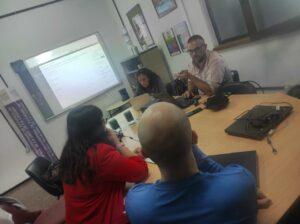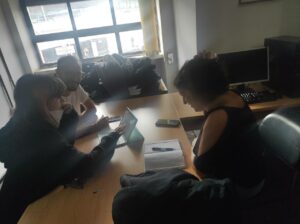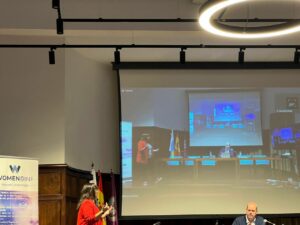During November 21, 22 and 23, within the framework of the ICWL+SETE 2022 Congress at the University of La Laguna, the 2nd Women@INF Workshop was held. As part of the activities, Alicia García-Holgado, as part of the project team, gave the conference “Gender, Diversity and Engineering Education”.
During these days, we have worked in a blended format with the entire team to analyze the data obtained from the online survey completed by 496 researchers dedicated to the field of IT on issues related to work-life balance, attraction and retention of talent and gender biases. Of the total respondents, 214 were women, so it was decided that sex was a variable that should be included and crossed in each and every one of the items analyzed in the report.
At the meeting we discussed the way in which the survey was going to be analyzed and the sources of secondary information that were going to be used to cross-reference the objective data with the ultimate intention of ratifying or refuting the conclusions of our study. In this sense, emphasis was placed on the importance of not only collecting quantitative data, but also qualitative data that would help us understand the context and difficulties of these scientific careers.



The project is called “Informatics research in Spain: Visualizing and making visible the work of women (WOMEN@INF)” and is financed by the Institute for Women and Equal Opportunities and coordinated by the University Institute of Studies of Women (IUEM) of the University of La Laguna. The Association for the Development of Educational Computing (ADIE), Association of University Computer Science Teachers (AENUI), Spanish Association for Artificial Intelligence (AEPIA), Spanish Association for Shape Recognition and Image Analysis (AERFAI) participate in it. , Human-Computer Interaction Association (AIPO), Spanish Section of the European Association of Computer Graphics (EUROGRAPHICS), Spanish Society for Video Game Sciences (SECiVi), Society of Computer Architecture and Technology (SARTECO), Spanish Society for Natural Language Processing (SEPLN), Society of Software Development Engineering and Technologies (SISTEDES).